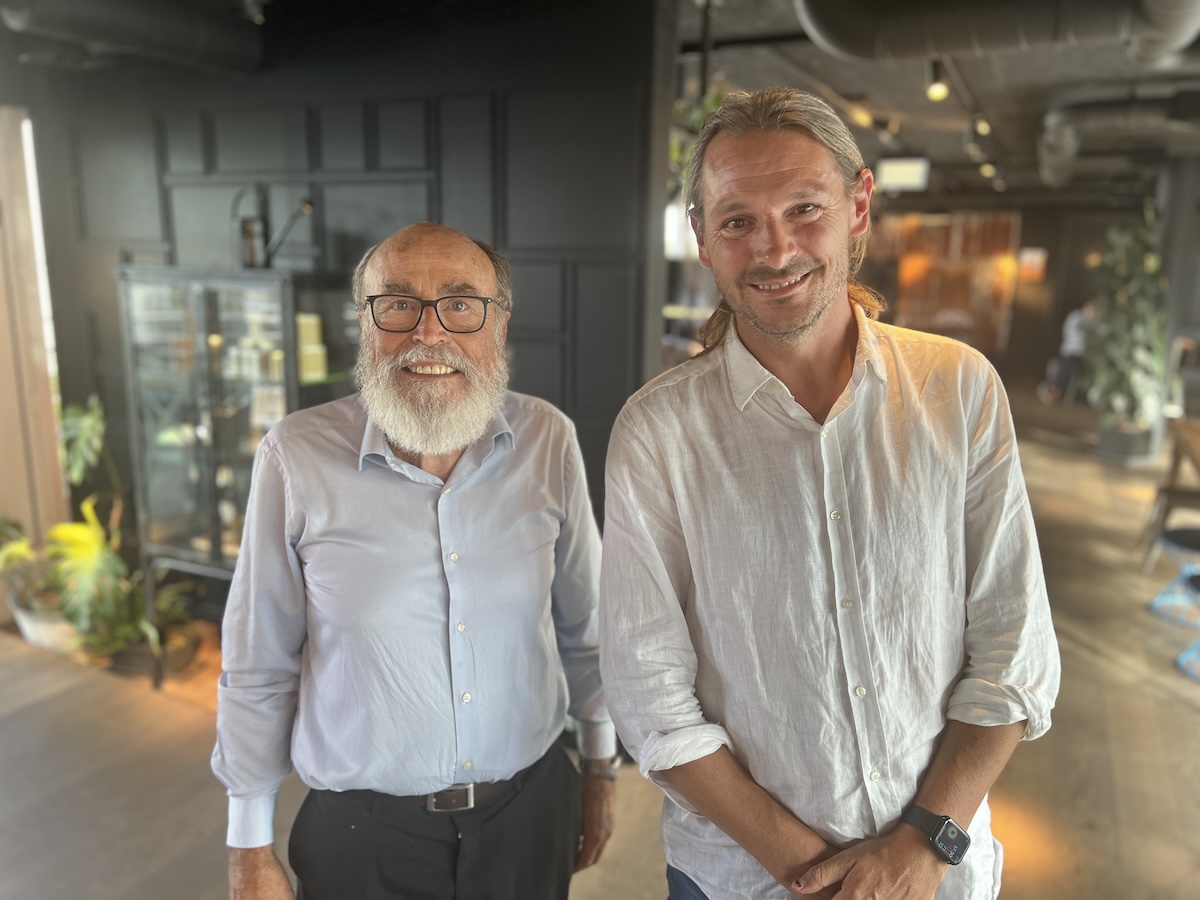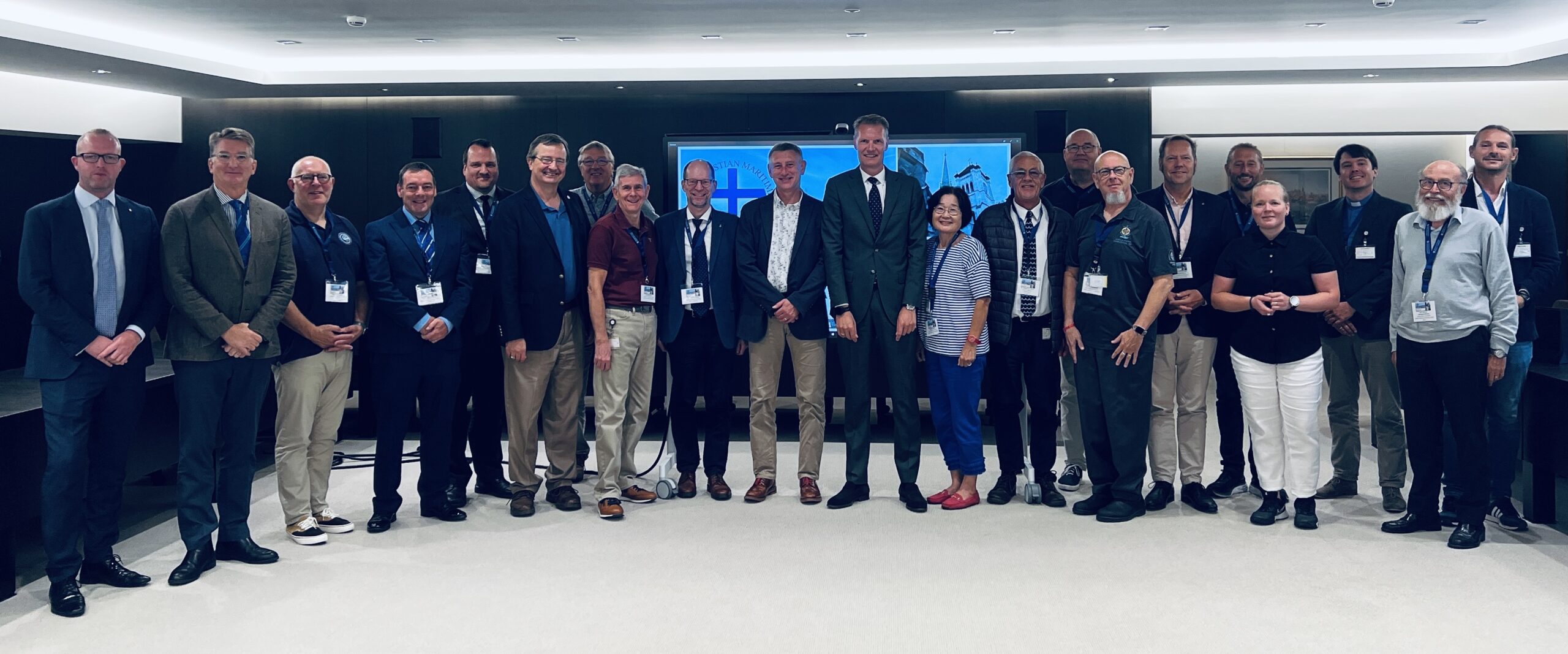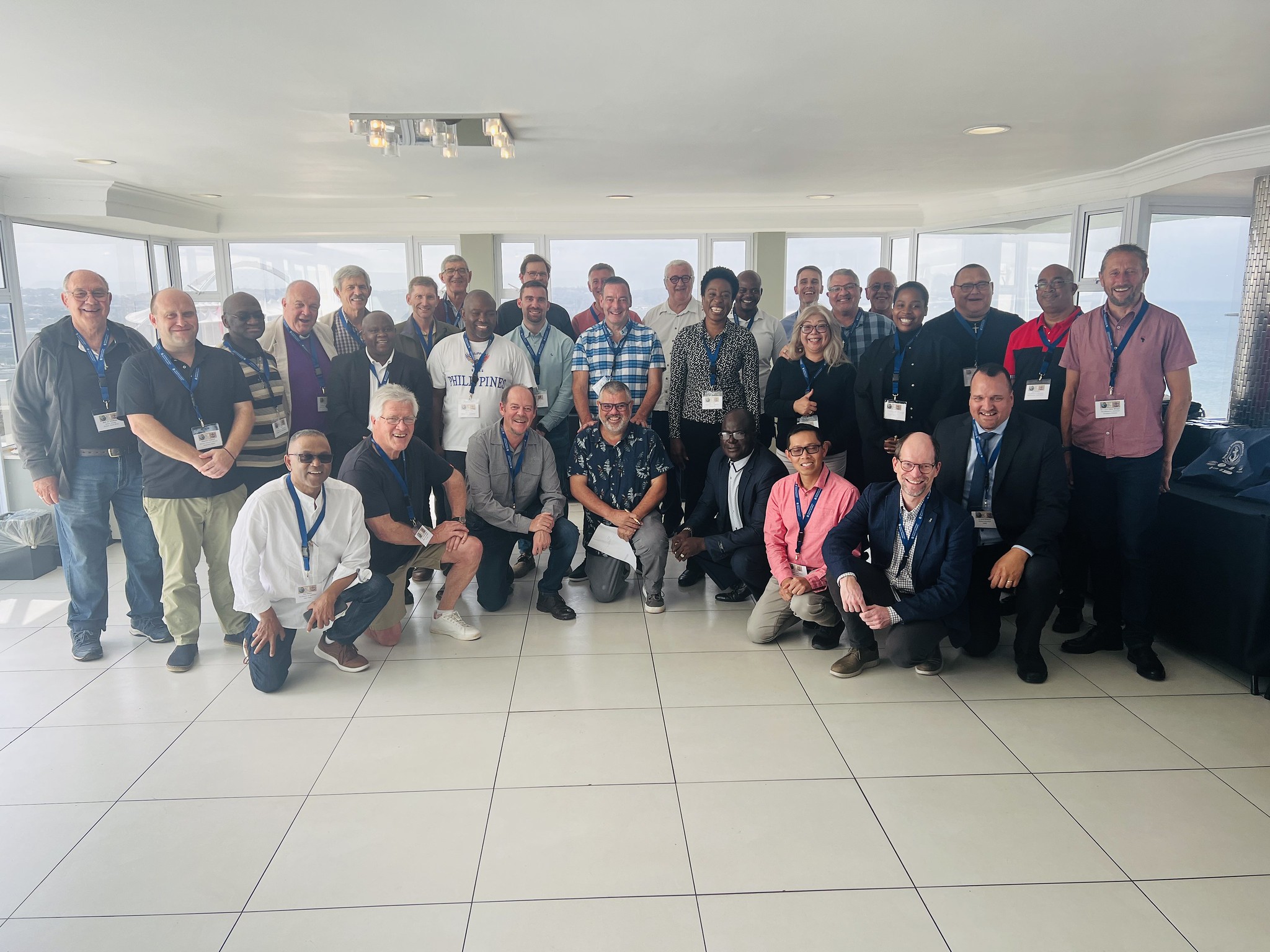On August 12, 2024, in Durban, South Africa, over 40 participants gathered for the ICMA Africa regional meeting. This significant gathering brought together a diverse array of members from the International Christian Maritime Association (ICMA). The event was marked by a compelling thematic presentation delivered by The Rev. Cedric Rautenbach, the ICMA regional coordinator and The Mission to Seafarers Africa regional director. His presentation, titled “What can we do to build sustainable partnerships?” set the tone for the discussions that followed, focusing on the vital need for sustainability in maritime ministry.
Rev. Rautenbach began by emphasizing the importance of cultivating “thinking people” within the ministry—individuals who not only engage in the work but also reflect on how their efforts apply to life and ministry at large. He posed a crucial question to the assembly: “How do we build sustainable partnerships?” In his exploration of this question, he defined sustainability as the ability to meet present needs without jeopardizing the future. This, he explained, involves ensuring long-term growth while avoiding negative consequences on social or environmental fronts.
A key theme of Rev. Rautenbach’s presentation was the foundation of ICMA, particularly the significance of the “C” in ICMA, which stands for Christian. He stressed that it is this Christian identity that unites the diverse members of the organization. To illustrate his points, Rev. Rautenbach drew on three stories from Scripture, each offering profound insights into the concept of sustainability in ministry.
The first story he recounted was the Parable of the Good Samaritan. In this parable, a Samaritan crosses the road to help a person in need, while others, including religious figures, pass by without stopping. Rev. Rautenbach highlighted the Samaritan’s willingness to take on the cost of caring, noting that true care requires us to “cross the road”—to move beyond our comfort zones and make sacrifices for those in need. The Samaritan’s promise to return and continue caring for the injured man, even at personal expense, exemplifies what it means to provide sustainable care—care that is ongoing, committed, and sacrificial.
The second biblical story Rev. Rautenbach shared was the Feeding of the 5,000. He posed a thought-provoking question: Was the miracle in Jesus’ hands or in the hands of the disciples? He argued that the disciples played a crucial role by having the faith to participate in the miracle. This act of faith, he suggested, is a model for us today. Just as the disciples believed and acted, in the context of the multiplication of the loaves and fish, we too can be instruments of God’s care and provision. This story, he emphasized, teaches us that sustainable ministry involves believing that God can and will use us to bring joy, life, and help to those in need.
The final story Rev. Rautenbach explored was the petition for “daily bread” in the Lord’s Prayer, connecting it to the story of manna in Exodus 16. He reminded the audience that the Israelites were given manna daily, sufficient for each day but not to be hoarded. This, he explained, is a lesson in trust—trust that God will provide what we need each day. He warned against greed and the accumulation of more than what is necessary, likening it to the manna that rotted when kept beyond its intended day. This story challenges us to rely on God’s provision, both as individuals and as an organization, believing that God will supply what is needed for today without anxiety over the future.
Rev. Rautenbach concluded his presentation by synthesizing these three stories into a cohesive vision for sustainable ministry. First, he emphasized the need to move across the road, to let go of our comforts, and to reach out to those who are suffering. He urged the participants to celebrate the shared joy and life that comes from God using us to help others, cautioning against unhelpful competition driven by fear of scarcity. Instead, he called for trust in God’s provision, affirming that while planning and hard work are necessary, it is ultimately God who provides.





